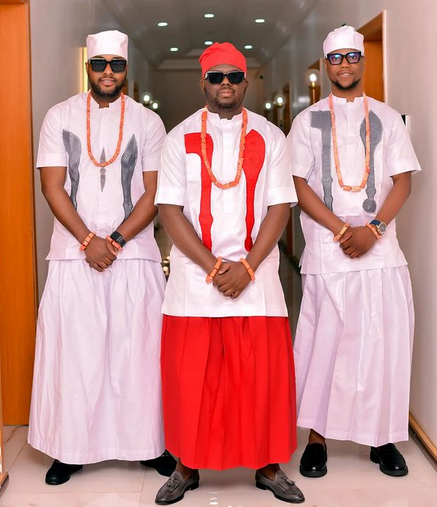Edo Language


About The Edo Language
Edo, also known as Bini, is a language spoken primarily by the Edo people of Nigeria, particularly in the southern part of the country, predominantly in Edo State. It belongs to the Edoid group of the larger Niger-Congo language family. Edo is a tonal language, meaning that the pitch or intonation of a word can change its meaning.
Linguistic Features:
1. Tonal System: Edo is characterized by a complex tonal system where pitch variations can distinguish between words. There are typically three or four tones in Edo, including high, mid, low, and sometimes a downstepped high tone.
2. Vowel Harmony: Edo exhibits vowel harmony, where certain vowels within a word must agree in terms of features like height or backness. This feature adds to the richness and complexity of the language.
3. Agglutinative Morphology: Edo often forms words by adding prefixes and suffixes to root words, resulting in long, complex words. This agglutinative morphology allows for the creation of new words and concepts with relative ease.
4. Noun Class System: Like many other languages in the Niger-Congo family, Edo employs a system of noun classes. Nouns are categorized into different classes, each with its own set of prefixes and agreement markers. These classes typically reflect semantic or grammatical distinctions rather than biological gender.
5. Verbal Aspect and Tense: Edo has a rich system of verbal aspect and tense, allowing speakers to convey nuances of time, duration, completion, and repetition through verb conjugation and auxiliary verbs.
6. Reduplication: Reduplication, the repetition of all or part of a word to indicate plurality, intensification, or other semantic nuances, is a common feature in Edo.
Cultural Significance:
1. Identity and Heritage: The Edo language plays a crucial role in preserving and transmitting the cultural heritage and identity of the Edo people. It serves as a symbol of their shared history, traditions, and values.
2. Oral Tradition: Much of Edo culture, folklore, and history are passed down through oral tradition, with storytelling, proverbs, and songs being integral parts of the language. These oral traditions contribute to the vitality and richness of the Edo linguistic and cultural landscape.
3. Literary Tradition: In recent years, there has been a growing interest in preserving and promoting Edo language and literature through written forms. Efforts are being made to produce literature, poetry, and educational materials in Edo to foster literacy and appreciation for the language among younger generations.
4. Language Revitalization: Despite the challenges posed by globalization and the dominance of major languages like English in Nigeria, there are ongoing efforts to revitalize and promote the use of Edo language in various domains, including education, media, and governance.
In summary, Edo language is not only a means of communication for the Edo people but also a repository of their cultural heritage and identity. Efforts to preserve, promote, and revitalize the language are crucial for ensuring its continued vitality and relevance in the modern world.